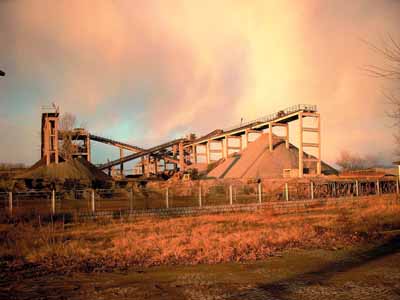Aggregates levy
Aggregates are materials that are frequently used in construction as a means of stabilising and reinforcement, typically in drainage applications and as base material under foundations and roads.
The aggregates levy is a UK tax on the commercial exploitation of certain types of aggregate. It was introduced to encourage the recycling of aggregate and is often a consideration in infrastructure and other civil engineering projects as well as the quarrying industry. In particular it applies to sand, gravel and rock that has been either:
- Dug from the ground.
- Dredged from the sea.
- Imported.
Businesses must register with HMRC if they exploit aggregate in the UK and must report the quantity of aggregate that has been produced or sold each quarter.
A flat tax of £2 per tonne of sand, gravel or rock has been applied at a frozen level since 2009, on 1 April 2024 the rate increased to £2.03 per tonne, and thereafter it will be subject to annual Retail Price Index (RPI) increases. Less is charged on smaller amounts, e.g. £1 per half-tonne, with the same tax still applied if aggregates are imported.
Tax relief may be available for aggregates that are exported or used in certain industrial or agricultural processes, or if the material is not actually used as aggregate. Materials such as soil, vegetation and other organic matter are also exempt.
For further information visit Aggregates Levy: detailed information and Environmental taxes, reliefs and schemes for businesses .
On 14 November 2023 the Scottish Government introduced and new Bill entitled 'The Aggregates Tax and Devolved Taxes Administration (Scotland) Bill' which will replace the UK Aggregates Levy in Scotland, stage 3 of the Bills progress ended on 1 October 2024.
[edit] Related articles on Designing Buildings
Featured articles and news
The challenge as PFI agreements come to an end
How construction deals with inherit assets built under long-term contracts.
Skills plan for engineering and building services
Comprehensive industry report highlights persistent skills challenges across the sector.
Choosing the right design team for a D&B Contract
An architect explains the nature and needs of working in this procurement route .
Statement from the Interim Chief Construction Advisor
Thouria Istephan; Architect and inquiry panel member outlines ongoing work, priorities and next steps.
The 2025 draft NPPF in brief with indicative responses
Local verses National and suitable verses sustainable: Consultation open for just over one week.
Increased vigilance on VAT Domestic Reverse Charge
HMRC bearing down with increasing force on construction consultant says.
Call for greater recognition of professional standards
Chartered bodies representing more than 1.5 million individuals have written to the UK Government.
Cutting carbon, cost and risk in estate management
Lessons from Cardiff Met’s “Halve the Half” initiative.
Inspiring the next generation to fulfil an electrified future
Technical Manager at ECA on the importance of engagement between industry and education.
Repairing historic stone and slate roofs
The need for a code of practice and technical advice note.
Environmental compliance; a checklist for 2026
Legislative changes, policy shifts, phased rollouts, and compliance updates to be aware of.
UKCW London to tackle sector’s most pressing issues
AI and skills development, ecology and the environment, policy and planning and more.
Managing building safety risks
Across an existing residential portfolio; a client's perspective.
ECA support for Gate Safe’s Safe School Gates Campaign.
Core construction skills explained
Preparing for a career in construction.
Retrofitting for resilience with the Leicester Resilience Hub
Community-serving facilities, enhanced as support and essential services for climate-related disruptions.






















